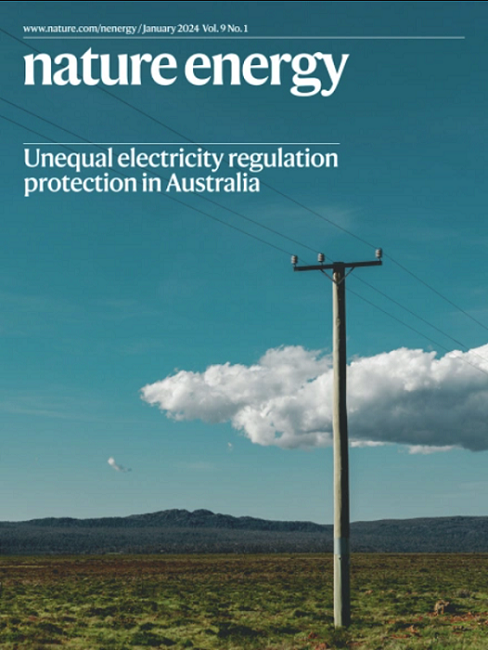绘制、理解和减少对电动汽车错误信息的相信
IF 60.1
1区 材料科学
Q1 ENERGY & FUELS
引用次数: 0
摘要
关于电动汽车(ev)的错误信息对全球向节能交通的过渡构成了重大挑战。我们调查了关于电动汽车的错误信息的流行程度,错误信息认可的预测因素以及减少其影响的两种潜在干预措施。在四个国家进行的调查(研究1和2,N = 6341)显示,更多的受访者同意有关电动汽车的错误信息陈述,而不是不同意。阴谋心态是这种信念的最强预测因素,而教育程度没有任何作用。在研究3 (N = 1500)中,我们测试了两种干预措施——情况说明书和与人工智能对话(ChatGPT)——以减少对错误信息的信任,增加支持电动汽车的政策支持和购买意愿。两种策略在干预后立即显示出适度的效果,并且在10天的随访中对错误信息信念的积极影响仍然显著。我们的研究结果强调了EV错误信息的普遍存在,不信任在形成过程中的作用,以及传统和新型信息策略减少错误信息的潜力。本文章由计算机程序翻译,如有差异,请以英文原文为准。


Mapping, understanding and reducing belief in misinformation about electric vehicles
Misinformation about electric vehicles (EVs) poses significant challenges to the global transition to energy efficient transportation. We investigated the prevalence of misinformation about EVs, predictors of misinformation endorsement and two potential interventions for reducing its impact. Surveys across four countries (Studies 1 and 2, N = 6,341) revealed that more respondents agreed with misinformation statements about EVs than disagreed with them. Conspiracy mentality emerged as the strongest predictor of such beliefs, whereas education played no role. In Study 3 (N = 1,500) we tested two interventions—a fact sheet and dialogues with artificial intelligence (ChatGPT)—for reducing belief in misinformation and increasing pro-EV policy support and purchase intentions. Both strategies showed modest effectiveness immediately post-intervention, and positive effects on misinformation beliefs remained significant at a 10-day follow-up. Our results highlight the prevalence of EV misinformation, the role of mistrust in shaping it and the potential for conventional and novel informational strategies to reduce it. Across four countries, more people agree with misinformation statements about electic vehicles than disagree with them, and conspiracist mentality is the strongest predictor of this agreement. Interactions with artificial intelligence show promise in reducing misinformation agreement.
求助全文
通过发布文献求助,成功后即可免费获取论文全文。
去求助
来源期刊

Nature Energy
Energy-Energy Engineering and Power Technology
CiteScore
75.10
自引率
1.10%
发文量
193
期刊介绍:
Nature Energy is a monthly, online-only journal committed to showcasing the most impactful research on energy, covering everything from its generation and distribution to the societal implications of energy technologies and policies.
With a focus on exploring all facets of the ongoing energy discourse, Nature Energy delves into topics such as energy generation, storage, distribution, management, and the societal impacts of energy technologies and policies. Emphasizing studies that push the boundaries of knowledge and contribute to the development of next-generation solutions, the journal serves as a platform for the exchange of ideas among stakeholders at the forefront of the energy sector.
Maintaining the hallmark standards of the Nature brand, Nature Energy boasts a dedicated team of professional editors, a rigorous peer-review process, meticulous copy-editing and production, rapid publication times, and editorial independence.
In addition to original research articles, Nature Energy also publishes a range of content types, including Comments, Perspectives, Reviews, News & Views, Features, and Correspondence, covering a diverse array of disciplines relevant to the field of energy.
 求助内容:
求助内容: 应助结果提醒方式:
应助结果提醒方式:


